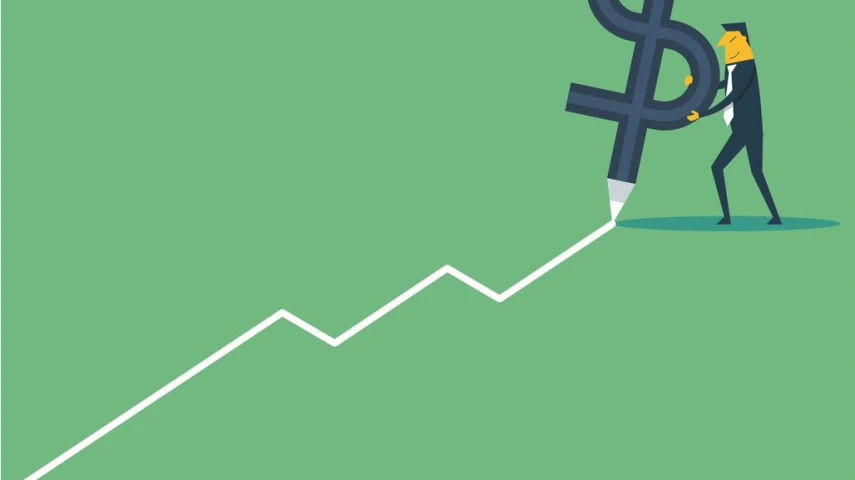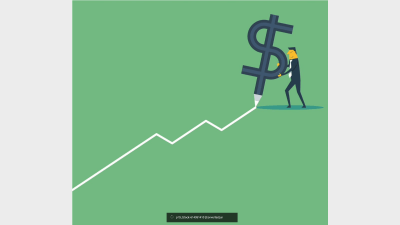Aussie market slumps as global soars



This year’s recalculation of the FE Crown ratings saw Australian equities take a hit in their ratings while their global peers soared, prompting Money Management to look into the nuances of the market over the last year and see where things went sour.
This February, the Australian equities sector saw nine funds hold a five-Crown rating, which is a significant drop from the 26 funds that held the top rating at the last recalculation.
Four of the top funds were Macquarie Investment Management funds, with SG Hiscock & Company and Legg Mason also producing five Crown funds in the sector.
What could have caused this drop, according to AMP economist, Shane Oliver, is a tough Q4 last year, a toll on sentiment following the Royal Commission, the slump in property prices and the flow on of that to retail stocks – specifically banks.
But, while it was a tough year for funds, Wealth Within economist Dale Gillham said only 50 per cent of the S&P ASX 200 market sectors fell less than five per cent, and two actually rose.
“The fall in our market was a direct result of the poor performance of just a handful of the biggest companies in our market, being the big four banks and Telstra,” said Gillham. “This shows that whilst our market was broadly flat it certainly showed it is more resilient and less volatile than many world markets.”
And while the US-China trade war and worries about the US Federal Reserve similarly caused some commotion in the global market, Oliver said global equities didn’t struggle as much as those on home soil.
“The pressure probably wasn’t as intense [on global markets] depending on where you were looking at,” said Oliver. “Global equities also came down in value through the last six months or so though, which reflected the worries of the global economy at the time.”
But, Oliver said that to some degree, having money overseas wasn’t necessarily a bad idea as the Aussie dollar fell at the same time.
“Global equity funds didn’t do as badly as Australian equity funds because the Australian dollar fell in value, which boosted the value of your offshore investment,” he said.
The February recalculation of the Crown ratings has indeed reflected this sentiment, with 25 global equity funds receiving a five-Crown rating as opposed to just six at the last calculation.
Colonial First State proved a stalwart in global equities with four of its funds receiving a five-Crown rating, while two Macquarie funds similarly achieved five-Crowns. Magellan’s Global fund received a five-Crown rating, up from three Crowns at the last calculation, and Vanguard’s Global Minimum Volatility fund received a five Crowns at its first ever rating.
A closer look at market falls
No particular sector managed to avoid the storm last year, but cyclical stocks, like resources and materials, were hit particularly hard in the downturn.
As well, Asian emerging markets had a tough year overall, and while they bottomed earlier in December relative to global markets and to Australia, they were hit fairly hard, something Oliver attributed to the trade war and the rising US dollar.
“[It] makes life difficult for emerging countries because a lot of their debt is denominated in US dollars, and if the US dollar is going up then it makes it more expensive for them to service their debt,” said Oliver.
Gillham said locally, healthcare was the top performing sector, returning 17.3 per cent, followed by information technology, with communication services on the other end of the spectrum down 21.39 per cent.
What style has the market favoured, and what will it favour?
Given the market fall was broad-based, it was tough for the economists to say which investor style suited the market more and which missed the mark, but Oliver suggested the market probably wasn’t that supportive of value.
“A lot of the strength earlier on was in growth-orientated stocks, particularly globally, with tech stocks doing very well, and while that did get hit when the market came down, cyclicals got hit harder,” he said.
And, given cyclicals tend to dominate in value styles, Oliver deduced the while the environment wasn’t particularly positive for either side, it tended to work against value more than it did against growth.
Oliver predicts the global economy is likely to stabilise as economic policy moves in a more dovish and supportive direction, which would see shares do a lot better across the board. He said the US Fed’s pause of its interest rate hike and the stimulus coming out of the Chinese government are indicators of what’s to come.
“That should benefit shares generally, and within that context I think value shares will probably do the best,” he said. “The cyclicals, as confidence returns that the world’s not going into recession and growth stocks take a back seat, will rebound.”
He also expects emerging markets to do quite well should the trade war find a resolution, as that would see Chinese growth stabilise and support the asset class.
Locally, Gillham said materials, mining, energy, healthcare, consumer staples and utilities look good in 2019, but investors should exercise caution around financials given there’s still some uncertainty with the banks.
“If the big miners including BHP, RIO, FMG and the banks move up together, this will push the All Ordinaries Index up through its previous all-time high in2007 and in doing so create a bullish sentiment that will broadly lift other sectors in the market,” said Gillham.
Recommended for you
Australian equities manager Datt Capital has built a retail-friendly version of its small-cap strategy for advisers, previously only available for wholesale investors.
The dominance of passive funds is having a knock-on effect on Australia’s M&A environment by creating a less responsive shareholder base, according to law firm Minter Ellison.
Morningstar Australasia is scrapping its controversial use of algorithm-driven Medalist ratings in Australia next year and confirmed all ratings will now be provided by human analysts.
LGT Wealth Management is maintaining a neutral stance on US equities going into 2026 as it is worried whether the hype around AI euphoria will continue.












